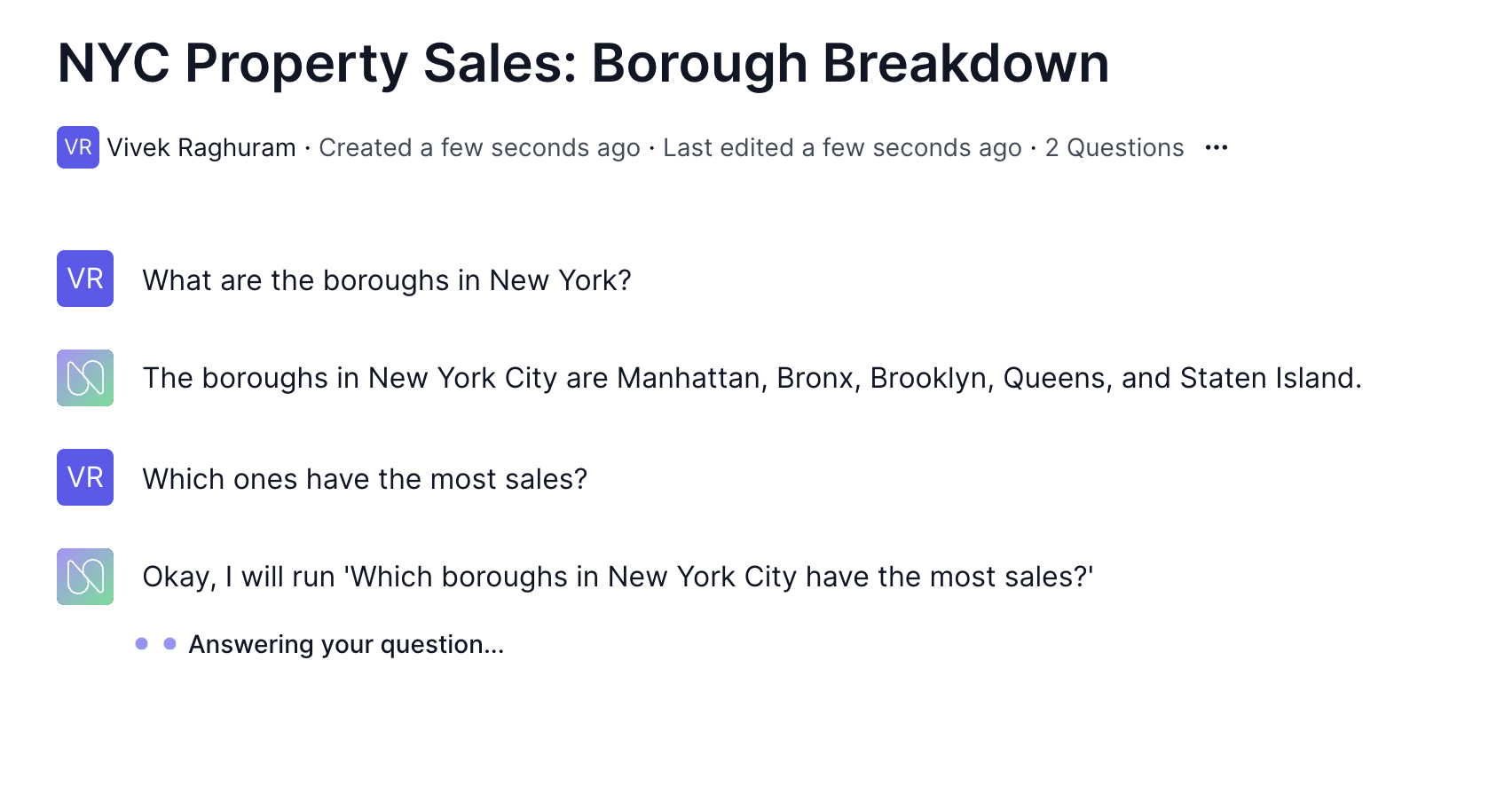Understanding Conversational Context in Numbers Station¶
In our data analytics agent, context plays a crucial role in providing accurate and relevant responses. This article explains how and when context is carried over within a conversation to enhance your experience.
What is Context?¶
In conversational AI, context refers to the information retained from previous interactions within the same conversation. This includes previous questions, and answers. By understanding context, the agent can offer more precise and relevant responses, making your interactions smoother and more efficient.
How context is Carried Over¶
Our agent retains context within the same conversation. This means it remembers the information from earlier in the conversation to provide coherent and informed responses. Think of it like talking to a human: if you ask someone about the weather and then follow up with a question about whether you need an umbrella, they will use the context of the weather discussion to answer your question. Similarly, the agent uses the context from your previous questions to provide relevant responses. If you ask for a summary of sales data and follow up with a question about a specific region's performance, the agent will use the context of the initial query to provide a more relevant answer.
When Context is Carried Over¶
Context is retained only within the current conversation. As soon as you start a new conversation, the context from the previous conversation is not carried over. This ensures that each conversation is independent, and you can have fresh interactions without any carryover from past conversations.
Even within a conversation, the model tries to be smart and detect when a question should be answered with or without the context of the conversation. It will try to rephrase the question and state it back to the user as it's answering it. If the model is using context, it will often reword the question to better present the context. This helps ensure that the responses are accurate and that the user is aware of the context being used.
Scenarios when context is retained¶
- Within the same conversation when the model thinks the follow-up question is related to earlier questions.
Scenarios when context is not retained¶
- Across different conversations.
- When the model thinks the follow-up question is unrelated to earlier questions.
Managing Context¶
While the agent automatically handles context within a conversation, you have some control over it.
- Starting a New Conversation: To start fresh, simply begin a new conversation. This clears the previous context and allows you to interact without any prior information influencing the responses.
- Explicit Context Reset: You can guide the agent to ignore previous context by framing your questions clearly. For example, if the previous discussion was about sales data, and you want to ask about customer feedback, you can start with, "Ignoring the previous discussion, can you tell me about customer feedback?"
Best Practices¶
While the agent tries to be intelligent about retaining context there are some steps users can take to get better results. To make the most of context retention, here are some tips.
- Be Clear and Specific: When asking follow-up questions, refer to previous answers clearly. For example, "Based on the sales data you provided, can you break it down by region?"
- Reset When Needed: If you switch topics, indicate clearly that you're starting a new line of inquiry.
- Single Conversation Focus: Try to keep related queries within the same conversation for better continuity.
FAQs¶
How do I know if the agent is using context from a previous part of the conversation?¶
The agent's responses will naturally incorporate relevant information from earlier interactions. If in doubt, you can always clarify or reset the context.
Can I clear the context mid-conversation?¶
While there's no direct command to clear context, you can start a new conversation or explicitly tell the agent to ignore previous discussions.
What if I don’t want the agent to remember anything from the conversation?¶
Each conversation is independent. Simply ending the conversation and starting a new one ensures no context is carried over.
